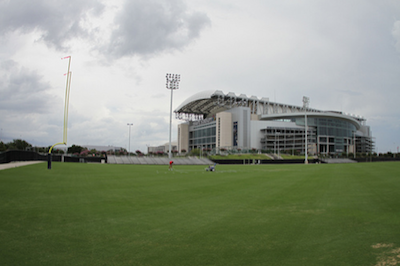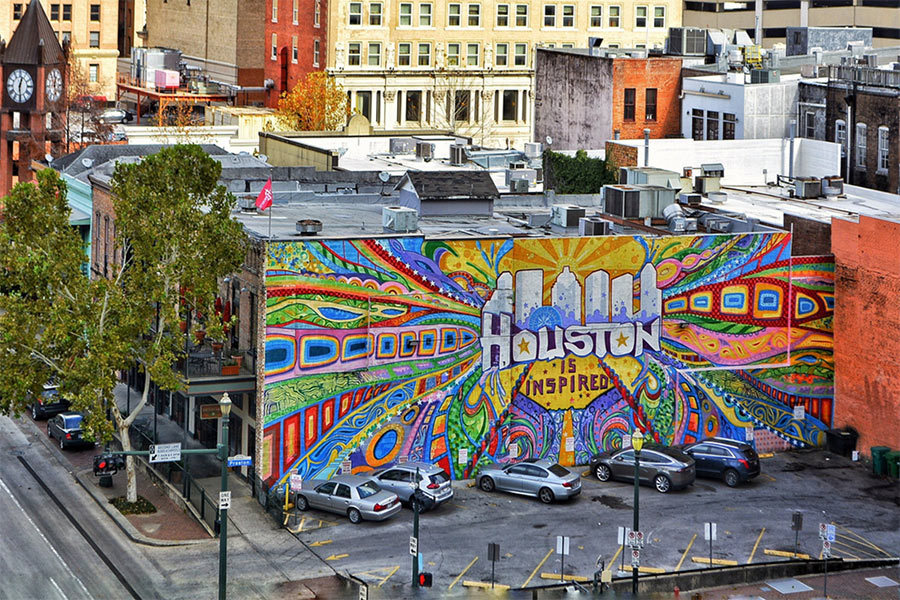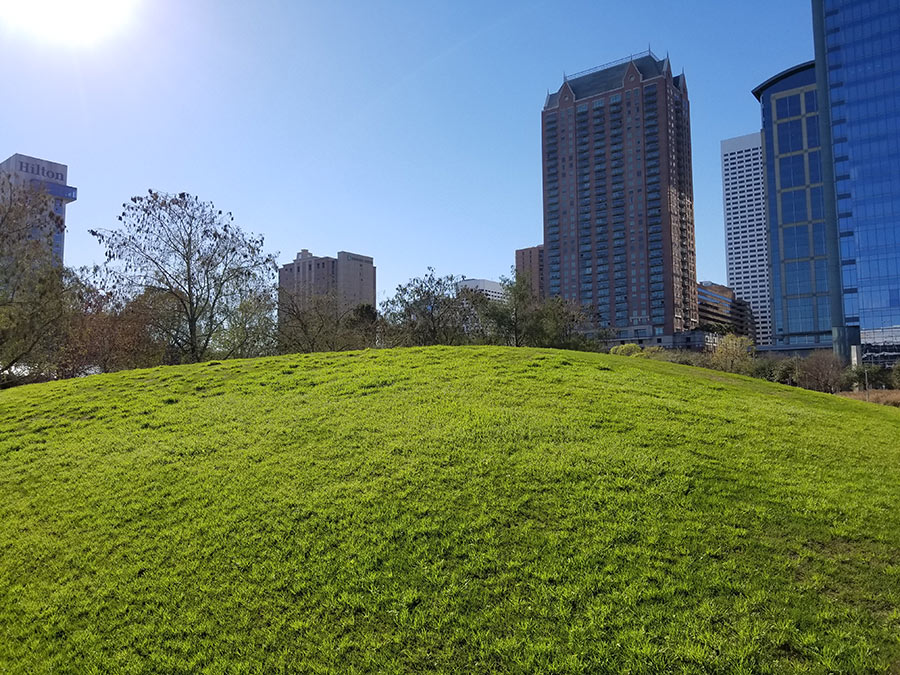
- New $15M Museum and Exhibition Space To Be Built Adjacent to San Jacinto Monument [Houston Chronicle ($)]
- Heavy Machinery for Energy Production Causing $2B in Highway Replacement, Maintenance Costs [Houston Chronicle ($)]
- State Leaders Plan To Close Rollover Pass [Houston Chronicle ($)]
- Four River Oaks Homes Designated as Historic Landmarks [Click2Houston]
Photo of Reliant Stadium: Alex Luster via Swamplot Flickr Pool





I really dont want to see rollover pass closed, caught many fish there.
I read the RO article yesterday online, it was an odd choice of houses, if those were awarded historical status pretty much any older home in RO will be able to aquire it. Yes, sad about Roll Over, but they’ve been supposing to close it for years, we’ll see if they actually do it this time. Let’s hope the new San Jacinto Museum keeps with the Art Deco architecture of the Monunment and compliments the the Tower. 15 million seems like a very small amount for this to be don’t right, I’m not optimistic, but maybe I’ll be pleasantly surprised.
So only heavy equipment used for fracking causes damage to highways? No other heavy equipment causes damage? Are we showing our bias?
Believe me the fracking industry has DESTROYED roads all over South Texas and the states answer is to revert some of the roads back to ..gravel, yes gravel. The state of Texas aspiring to 1930. The state has made billions off of fracking and then grouses his it doesn’t have the funds to repair the roads destroyed by fracking
Trey–The gear needed to frac wells on a single well-pad is unbelievably heavy. A single pump might weigh 75,000 lbs, and you use 12 or more on a single pad, not to mention a hydration unit, a blender, a manifold, a data van–and these are the things that just stay on the well site. You also have sand carried in vehicles so big that they are often called “sand hulks”. They come and go from a single well site constantly. And depending on how you get water to the site, that may mean even more trucks.
This army of vehicles leaves from a single yard and tends to go over some of the same roads over and over again on its way to different well-pads where the wells to be fracked are.
The point is, fracking tends to place a lot of stress on a small number of roads that are in continuous use in a given area. I work in in the frac business and am totally pro-fracking, and I think it is totally reasonable for localities (whether counties or states) to require a reasonable road maintenance surcharge from companies that operate frac spreads in an area. (Of course, it should be based on actual use.) After all, these are the same roads our employees drive on to get to work or to run errands and that their kids ride school buses on.
Just that the energy industry is easily vilified and has deep pockets, making it a prime target when there is a want/need for more money.
Personally, I feel that all highway/road maintenance in a given state should be 100% funded via the fuel taxes collected in that state. If you drive in the state, you are probably purchasing fuel in that state, which in turn pays for the maintenance of the roads you are driving on. Drive a heavy vehicle? you are probably putting more wear on the roads than a lighter one, but you are probably buying more fuel too, and paying more in road tax. If maintenance costs increase, the state gas tax increases to match, if the costs decrease, the tax decreases accordingly.
Don’t send the money I spent on the Texas Gas Tax to Illinois to maintain their roads, and I won’t expect them to send money to pay for mine. If I go on vacation there and rent a car, I’ll buy gas there, which will be taxed accordingly and contribute to that state’s road maintenance fund.
But of course, no one asked me.
@abp great idea, they already do this, too bad they haven’t raised the state gas tax, or national gas tax in a while. meanwhile costs to maintain have done nothing but go up, meaning the money comes from somewhere else.
ok if you refine oil isnt the bottom of the barrel left over product called “asphalt”?? More oil fracked should mean more asphalt produced at the refinery. South Texas pretty much has gravel in many places so I see a solution!! Now to get the powers to be to act on it.
The state constructed Rollover pass back in the 50’s–why shouldn’t it have the right to undo what it did?
Speaking of fracking, the story below had a night time aerial of the SA-Austin region. Across the bottom right of the photo there appears a heavily-populated swath of irregular spaced lights – are these individual well sites?
http://blog.mysanantonio.com/chris-duel/2013/10/karennyberg/
@Limestone No that’s just the surrounding SA/ATX neighborhoods. The Eagle Ford Shale is further south/southwest (approx 50 miles from SA to northern part of the shale). Check out this article/photo of the Eagle Ford Shale as seen from space: http://blogs.scientificamerican.com/plugged-in/2012/12/27/the-eagle-ford-shale-boom-from-space/
@Joey. Thanks for your link. Actually your link confirms that the angled swath of lights in the link I posted are indeed Eagle Ford wells. It matches the Scientific American image in location.
@Limestone Yes you’re correct. Majority of the EF Shale is to south/southwest of SA but there are numerous wells in the northeastern section (Gonzales, Wilson county) specifically.
What about all the hybrid cars? They pay minimal gas tax, and the electric ones pay none. I heard the state is looking at a special tax for them, to go to the road maintenance fund. At purchase is only a one time fee, so registration is probably where they will collect it.